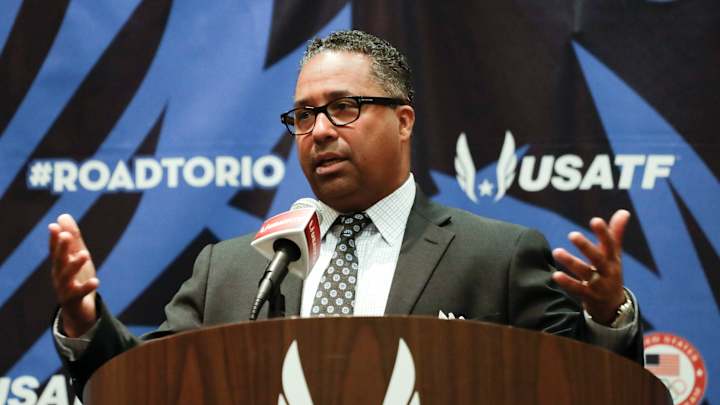USA track official: Rio logistics will be a problem

EUGENE, Ore. (AP) At about the same time newly minted members of the U.S. Olympic track team get their uniforms, they'll be led to a TV monitor featuring a map of Rio de Janeiro with three dots: the athletes' village, the track team's training center and Olympic Stadium.
None of them are all that close to one another; all will take a long time to reach.
USA Track and Field CEO Max Siegel said Tuesday that after a few visits to Brazil, ''we realized logistics would be a problem.''
So, in addition to counting on the Olympic traffic lanes that will supposedly make travel easier for the 120-plus U.S. track and field Olympians, USATF staff is making it clear to the athletes that they need to build in plenty of time to make their way through the city.
It's expected to be a 45-to-60-minute drive from the athletes' village to both the stadium and the training center.
''It's getting coaches and athletes to understand that it's not going to be easy, like London, where everything is easy and right there,'' said Robert Chapman, USATF's associate director for sport science and medicine.
Siegel said USATF is working with the U.S. Olympic Committee on contingency plans in case traffic does end up as snarled as some predict. Aretha Thurmond, a four-time Olympian who is now director of international teams for USATF, said staff will be on the ground a full two weeks before the Olympic track meet starts to make test runs to the stadium and map out every possible option for athletes.
''There's only so much that's in your control,'' Thurmond said. ''You've got a city with a mountain in the middle, and you've got to go around it.''
The process of getting from Point A to Point B may seem like a rather low-level concern considering all the other troubles consuming the Olympic city: Zika, polluted water, security concerns amid a financial crisis and more. But, as Thurmond knows, athletes need a comfort level as they head for the biggest competition of their lives.
''If we know something's not right, then we try to build that into their travel schedule,'' she said, ''so athletes don't have to make that decision.''
Regarding the mosquito-borne virus that has hit Brazil as hard as any country, Siegel said USATF has taken part in USOC-led seminars and is distributing as much information as possible about health concerns.
Among the many leaflets the athletes pick up at team processing in Eugene is one distributed by the Centers for Disease Control and Prevention called ''Mosquito Bite Prevention For Travelers.'' The USOC will give athletes bug repellant when they go through Team USA processing in Houston later this month.
But traffic, in Siegel's view, is ''frankly, one of our biggest concerns over things we don't have immediate control over.''
Siegel spoke on an off day at the U.S. Track and Field Trials, and outlined his vision over the four-plus years since he took over at what is widely viewed as the country's most difficult-to-manage national governing body.
Siegel said USATF ran on an average of $18 million a year when he arrived. Thanks to new sponsorship deals, including 12 new marketing partners, the number has doubled. That has allowed USATF to give $10,000 stipends to athletes who make the national team along with bonuses of up to $25,000 for gold medals at the Olympics.
It hardly quiets the federation's critics, who believe they should have more freedom to wear whatever gear they choose at the sport's biggest events and want to see more revenue sharing beyond the stipends and rewards for medals.
One of the most vocal critics, 800-meter runner Nick Symmonds, recently filed a sponsorship-related lawsuit against the USOC that was thrown out. He has been urging athletes and fans to wear black tape at trials as a show of solidarity against the governing bodies.
''If we can't change things through litigation, then we have to go through protest, and athletes have to stand up and say: `Enough is enough. This will change or we're not going to race anymore,''' Symmonds told The Associated Press last week.
Siegel said he's trying to create a bigger pie, but also gave a nod to the reality that USATF, unlike the NFL or NBA, is a not-for-profit organization that serves not only its professional athletes, but also its grassroots members and programs.
''The conversation gets a little cloudy when people have whatever their personal definition is about sharing money with athletes,'' he said. ''If you host an event that gives an athlete a platform, some would say that's not money in the athlete's pocket. But someone needs to fund those things.''
